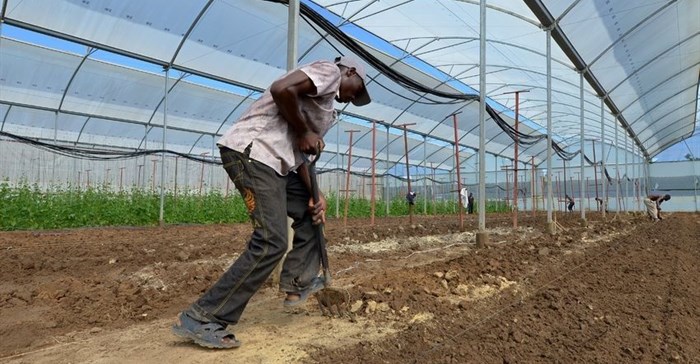
Top stories



“Once a nation is self-sufficient in food, farmers can diversify into cash-related crops, both for regional markets and higher value for export further afield.” Also, when surplus, home-grown food is produced, opportunities to add value to these traditionally low-value food crops through processing them and producing a higher value food for sale locally and as an export item arise.
“However, the sector suffers from an overall lack of commercial and efficient practices, compounded by volatility in many guises – challenging climatic conditions, political instability, and unpredictable commodity prices and currencies.”
These are compounded by other factors relating to a lack of infrastructure, including:
• Usable roads
• Storage facilities
• Dams for irrigation
• Lack of utilities
“Perhaps even more critically, there is an acute lack of experienced management resources in a broad number of essential skills – both at senior and junior levels,” McSporran continues.
“Against this backdrop, opportunities for early-stage development and primary production, in particular, are perceived to be too risky, too small or too tough, offering returns which are either too little, too late or both, for commercial investors or banks. Exactly where it is needed most, investors are reluctant to commit capital.”
And yet without investment in early-stage development or primary production, the African agricultural sector cannot advance, commercial value chains will not materialise and mainstream investment potential will be lost.
“Put simply, future opportunities cannot arise without a successful starting point.”
AgDevCo has identified the importance of capital at this critical point, stepping in where investment would otherwise not happen. Equally, it has recognised and experienced, through “smart trial and error,” that money alone is not enough to fix this essential part of the supply chain.
AgDevCo also provides:
• Access to markets
• Management
• Technology
• The creation of sustainable value chains
• Training
“We select our investment businesses and opportunities with care and scrutiny. Typically, we invest between $2m and $5m of debt and equity in early-stage enterprises, targeting primary food production, where we believe we can make the most impact,” he explains. These investments represent 60-70% of the AgDevCo portfolio, even though it invests right across the food supply chain – from sourcing the seed to selling the products.
Importantly, the company has a long-term outlook and provides patient capital – which means it supports agribusinesses that would otherwise struggle to secure financing with realistic pay-back criteria, if at all.
“As AgDevCo, we give more time to our investments, improving their chances to develop into viable, commercial businesses.”
In many instances, the opportunities have to be created. This may be in the form of identifying and linking experienced partners (such as primary producers) with a marketer in a specific field – processors and exporters of niche products with the producers or even being the lead in “Greenfield” development to create the opportunity. The latter is probably the riskiest investment of all. Experience has taught the company that in order to develop sustainable schemes delivering benefit to smallholders (e.g. access to inputs, training and markets) some upfront investment is required that may not be recoverable.
AgDevCo uses an endowment fund from the British government to help remove some of these risks in regions where there is little development, or where it will have a major development impact on smallholders and local agribusinesses.
It has also participated in a partnership with the Mastercard Foundation to form the Smallholder Development Unit, which helps promote linkages with smallholder farmers and local agribusiness, strengthening their structures and rolling out their schemes while bolstering their technical knowledge through training.
“From our experience of making some 50 agricultural investments in eight sub-Saharan African countries, we have learned what is required to support these emerging agricultural businesses. To identify and implement these investments, good resident knowledge with strong local networks is essential,” McSporran clarifies.
To date, the company has made a $110m commitment to 56 investments, linked 250,000 farmers to markets, created 7,800 jobs and leveraged $128m third-party capital. By 2022 it plans to increase its direct investments – both in debt and equity – $250m.
“Ultimately, we will measure our success through the long-term transformational impact that our investments make. We improve market efficiencies, promote new industry sectors and create investable opportunities for the private sector to enhance the long-term commercial prospects for Africa’s agricultural sector,” McSporran concludes.